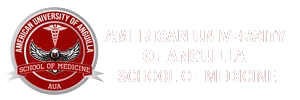

Student Support
Supporting Students Academically
A crucial responsibility of an academic advisor is to foster the professional growth of students. Advisors play a vital role in identifying academic needs, assisting students in accessing resources and support, both on a personal and professional level.
Advisor’s Role by Year
Year 1
Getting Acquainted – taking the time to understand the student and exploring any potential weaknesses in their premedical curriculum; encouraging the student to maintain a healthy balance in their life while attending a Caribbean medical school.
Guidance on Academic Matters
- Identifying needs and interests
- Motivating the student to create a weekly course schedule that outlines their accomplishments
- Discussions on preparing for NBME exams
- Reviewing the first assessment and devising an action plan
Professional Guidance
- Providing inspiration regarding a career in medicine
- Sharing personal experiences
Career Guidance
- Initiating conversations about different specialties
- Introducing early clinical experiences
- Discussing challenging topics encountered during clinical experiences
Year 2
It is recommended to have at least one advising session each term between the advisor and the student.
- Reviewing academic performance
- Discussing strategies for Case Presentations, NBME exams, and clerkships
- Further exploring the choice of specialty and emphasizing the importance of a well-rounded development that encompasses grades, clinical skills, interpersonal communication skills, professionalism, and social awareness.
Year 3-4
Guidance on Academic Matters
- Reviewing clerkship shelf exams
- Preparing for NBME exams
Professional Guidance
- Providing inspiration regarding a career in medicine
- Sharing personal experiences
Career Guidance
- Engaging in one-on-one discussions about strengths and weaknesses
- Planning an appropriate elective schedule
- Discussing ways to improve areas highlighted in a performance evaluation (MSPE)
- Preparing for residency applications – letters of reference, personal statements, interviews
- Preparation for the Match and the SOAP process.
